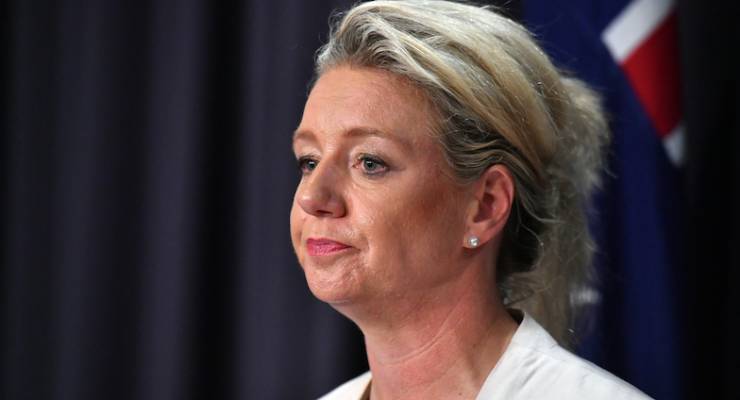
The Senate Select Committee on Administration of Sports Grants (aka sports rorts) should be encouraged to continue and complete its inquiry.
There will be protests that there are more important issues for the parliament to consider. This is in a sense true. Sports grants in themselves are trivial compared to the challenges of dealing with COVID-19 and our economic recovery.
Sports enthusiasts may disagree, but grants to local sporting bodies are not the key question here.
What matters is holding ministers to account.
Especially now, when ministers have unprecedented power to make decisions affecting our lives, it is more important than ever that they make those decisions properly, with authority from our elected representatives in parliament.
The institutional means to ensure this is a minister’s knowledge that their decisions will be subject to scrutiny.
Without that we go the way of countries like Hungary or the Philippines, whose presidents are assuming dictatorial powers under cover of the virus.
It’s not about Bridget McKenzie: she has moved on already. It’s about how a democratic system keeps ministerial power in check.
Australian citizens’ trust in government — and other institutions — has been falling over many years. All sides of politics have an interest in halting the decline, especially in light of our current challenges.
Trust depends, among many factors, on ethical and effective management of government grants. Grants are more sensitive than most spending programs. They can benefit communities and grass roots organisations — or be misused for party political purposes, to reward favourites, or enrich mates. They are open to abuse and mismanagement under both Coalition and Labor governments.
Grants programs should be fair, ethical and transparent, managed according to clear principles and guidelines.
One of the key principles of our system is that ministers should not decide how to spend public money without legal authority.
In its report on the community sport infrastructure grants the Audit Office (ANAO) said “it is not evident to the ANAO what the legal authority [for the minister to approve grants] was”.
In an answer to a question on notice, published this week, Sports Australia has confirmed it provided no advice to the minister on her legal authority. There is continuing doubt. Sports Australia says the legal basis was “Sport Australia’s own powers under the Australian Sports Commission Act 1989. In exercising its powers, it was open to Sport Australia to take account of the minister’s approval”.
Sports Australia reveals it only sought legal advice after the ANAO raised the issue. It has provided that advice, but asked the committee to keep it secret. Hopefully the committee will ignore the request. This advice was paid for with taxpayers’ funds, provided to a public body. It is hard to see how its release would harm national security or future commercial negotiations.
The former minister’s submission argues that there was no political bias in awarding the grants. The ANAO report suggested otherwise. The Senate committee, and the public, can draw their own conclusions.
Bridget McKenzie criticises Sports Australia’s grants processes, partly as a justification for her exercise of ministerial discretion.
She also says — confirmed by Sports Australia — that it never briefed her about the issue of legal authority to approve the grants.
On this last issue she has a point.
Ministers, absolutely, need to make their own inquiries to satisfy themselves that they are acting properly. They have offices to help them. She or her office should have.
Nevertheless, public servants should also help. It is not good practice to watch a minister walk blindfolded into a minefield while doing the bureaucratic equivalent of sticking fingers in your ears and singing loudly. Sports Australia notably failed to provide advice to its minister on her legal status.
We know how grants should be administered. There are Commonwealth Grants Rules and Guidelines (good guidance, even though technically Sports Australia is exempt) and numerous pieces of advice from the Finance Department, past ANAO reports, and parliamentary reports to draw on.
What failed here was not the regulatory framework, but the culture of accountability and responsibility.
The sports infrastructure grants were awarded hastily, in the context of a rapidly approaching election. Indeed, there is a question as to whether late changes were too late under caretaker conventions, under which governments do not take major decisions during the election period.
That is not an excuse. It is precisely in times of speed and pressure that ministers should be vigilant about acting properly and with legal authority. It applied then, and applies now, COVID-19 or not.








Crikey is committed to hosting lively discussions. Help us keep the conversation useful, interesting and welcoming. We aim to publish comments quickly in the interest of promoting robust conversation, but we’re a small team and we deploy filters to protect against legal risk. Occasionally your comment may be held up while we review, but we’re working as fast as we can to keep the conversation rolling.
The Crikey comment section is members-only content. Please subscribe to leave a comment.
The Crikey comment section is members-only content. Please login to leave a comment.